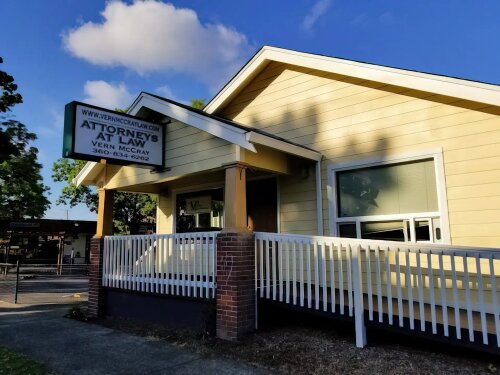Best Juvenile Law Lawyers in Washington
Share your needs with us, get contacted by law firms.
Free. Takes 2 min.
Or refine your search by selecting a city:
List of the best lawyers in Washington, United States
About Juvenile Law in Washington, United States
Juvenile law in Washington refers to a specialized area of law that deals with individuals under the age of 18 who are involved in legal matters. These matters can include criminal offenses, status offenses (like truancy or curfew violations), and issues related to child welfare or dependency. Juvenile courts in Washington operate on a different set of principles compared to adult courts, with a greater focus on rehabilitation and support rather than strict punishment. The system seeks to protect the best interests of minors while ensuring public safety and providing opportunities for positive development.
Why You May Need a Lawyer
Legal issues involving minors can be complex and emotional. You may need a lawyer if your child is accused of a crime, involved in truancy, or if there are concerns regarding their well-being due to family or guardianship disputes. Parents or guardians often seek legal support when facing Child Protective Services (CPS) investigations or when a minor's rights may be at risk during interrogation or legal proceedings. Juvenile law attorneys can provide guidance, represent your child in court, explain legal processes, and help protect your child’s rights and future opportunities.
Local Laws Overview
Washington state has its own laws and procedures for handling juvenile cases, primarily governed by Title 13 of the Revised Code of Washington (RCW). Key aspects include:
- The juvenile justice system handles most offenses committed by individuals aged 8 to 17.
- Juvenile court strives for rehabilitation through services such as counseling, education, and community service.
- Minors have a right to legal representation and, in many cases, court-appointed attorneys are available if the family cannot afford one.
- Some serious offenses can result in the minor being tried as an adult, which carries different consequences.
- Records for juvenile offenders are generally sealed or confidential, though exceptions exist for certain serious crimes.
- There are specific legal proceedings for status offenses and child dependency cases that aim to support at-risk youth and families.
Frequently Asked Questions
What ages are considered "juvenile" in Washington's legal system?
In Washington, individuals between the ages of 8 and 17 are considered juveniles for the purposes of the justice system. In some cases, those under 18 can be charged as adults depending on the severity of the offense.
What rights does a minor have if arrested?
Juveniles have the right to remain silent, the right to an attorney, and the right to have a parent or guardian present during questioning. These rights should be clearly communicated to both the minor and their guardians.
Can my child's juvenile record be sealed?
Many juvenile records in Washington can be sealed after certain conditions are met, such as completing the sentence and maintaining a clean record for a set period. Some serious offenses may not be eligible for sealing.
What types of offenses does the juvenile court handle?
Juvenile courts handle criminal offenses, status offenses (like truancy), and dependency cases involving abuse, neglect, or family instability.
What is a status offense?
A status offense is behavior that is only considered a violation of the law because of the minor’s age, such as truancy, running away, or violating curfew.
Could my child be tried as an adult?
In Washington, juveniles accused of certain serious offenses, such as violent felonies, may be charged and tried as adults. This is known as "declining jurisdiction."
Do parents have to pay for their child's legal representation?
If a family cannot afford an attorney, the court will appoint one for the juvenile at no cost. However, families who are able to pay may be responsible for legal fees.
What happens if my child is found guilty in juvenile court?
If found responsible, consequences may include probation, community service, counseling, restitution, or placement in a juvenile detention facility. The focus is on rehabilitation rather than punishment.
How can a lawyer help in juvenile law cases?
A lawyer can guide you through the legal process, defend your child's rights, negotiate outcomes, and advocate for less severe consequences or access to support services.
Can my child be questioned by police without a parent present?
Law enforcement officers must make reasonable efforts to notify parents or guardians before questioning a minor, but there are exceptions. It is strongly advised that a parent or attorney be present during questioning.
Additional Resources
If you need more information or assistance regarding juvenile law in Washington, consider the following resources:
- Washington State Office of Public Defense - Juvenile Division
- Washington Courts - Juvenile Justice
- Washington State Department of Children, Youth, and Families (DCYF)
- TeamChild - Legal services for youth
- Northwest Justice Project - Free legal assistance and information
- Your local county public defender's office
Next Steps
If your child is facing legal challenges, it is important to act quickly. Begin by gathering any documentation related to your child's case, including court notices and police reports. Reach out to a qualified juvenile law attorney for a consultation, even if you are unsure whether your situation requires legal help. If you cannot afford private legal representation, contact your local public defender's office or legal aid organization to request assistance. Ensure your child understands their rights and encourage open communication with legal counsel. Taking these steps can help protect your child's future and ensure the best possible outcome for your family.
Lawzana helps you find the best lawyers and law firms in Washington through a curated and pre-screened list of qualified legal professionals. Our platform offers rankings and detailed profiles of attorneys and law firms, allowing you to compare based on practice areas, including Juvenile Law, experience, and client feedback.
Each profile includes a description of the firm's areas of practice, client reviews, team members and partners, year of establishment, spoken languages, office locations, contact information, social media presence, and any published articles or resources. Most firms on our platform speak English and are experienced in both local and international legal matters.
Get a quote from top-rated law firms in Washington, United States — quickly, securely, and without unnecessary hassle.
Disclaimer:
The information provided on this page is for general informational purposes only and does not constitute legal advice. While we strive to ensure the accuracy and relevance of the content, legal information may change over time, and interpretations of the law can vary. You should always consult with a qualified legal professional for advice specific to your situation.
We disclaim all liability for actions taken or not taken based on the content of this page. If you believe any information is incorrect or outdated, please contact us, and we will review and update it where appropriate.
Browse juvenile law law firms by city in Washington
Refine your search by selecting a city.









